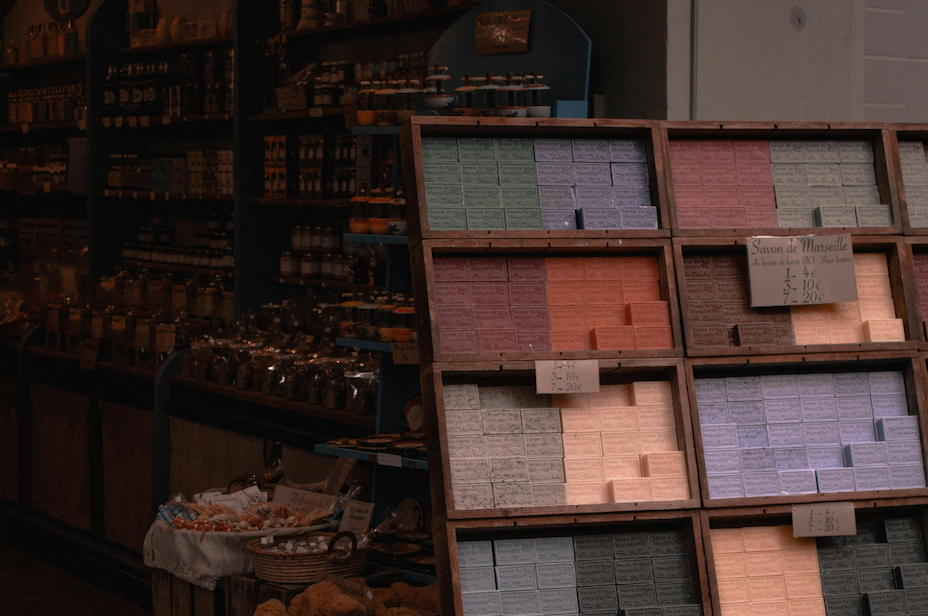
Why Choose All-Natural Soap Over Commercial Soap?
Share
In today’s world, we are more conscious than ever about the ingredients in our food, skincare, and household products. One area where many people are making a change is their choice of soap. All-natural soap has gained popularity as consumers learn more about the harsh chemicals found in commercial soaps and the benefits of using organic, handmade alternatives. If you’ve ever wondered whether switching to chemical-free soap is worth it, this article will explain why it’s one of the best choices for your skin and overall health.
The Problem with Commercial Soaps
Most commercial soaps you find in grocery stores are not actually soaps at all but synthetic detergents made with artificial fragrances, harsh surfactants, and chemical preservatives. While they may produce a rich lather and leave you feeling "clean," they often come at a cost to your skin’s health.
Harmful Ingredients Found in Commercial Soaps
Here are some of the most common toxic ingredients in commercial soaps that you won’t find in our all-natural, organic handmade soap:
-
Sodium Lauryl Sulfate (SLS) & Sodium Laureth Sulfate (SLES)
-
These harsh surfactants strip the skin of natural oils, leading to dryness, irritation, and even eczema flare-ups.
-
SLES is often contaminated with 1,4-Dioxane, a known carcinogen.
-
Parabens (Methylparaben, Propylparaben, Butylparaben)
-
Parabens are synthetic preservatives that can disrupt hormones and have been linked to breast cancer in some studies.
-
They are absorbed into the skin and can accumulate in the body over time.
-
Artificial Fragrances & Phthalates
-
The term "fragrance" on an ingredient label can hide hundreds of synthetic chemicals, some of which are linked to allergies, headaches, and hormonal imbalances.
-
Phthalates, commonly used in fragrances, have been linked to reproductive issues.
-
Triclosan
-
An antimicrobial agent that was banned from hand soaps by the FDA but is still found in some body washes and bar soaps.
-
It contributes to antibiotic resistance and has been linked to hormone disruption.
-
Synthetic Dyes
-
Many commercial soaps use artificial colorants derived from petroleum-based sources.
-
These dyes can be absorbed into the skin and may cause irritation and long-term health risks.
The Benefits of All-Natural Soap
Unlike commercial soaps, all-natural soap is made with pure, skin-friendly ingredients that nourish rather than harm. Here’s why organic handmade soap is the superior choice:
1. Free from Toxic Chemicals
Our handmade soaps contain no synthetic detergents, no parabens, no sulfates, and no artificial fragrances. Instead, we use plant-based oils, natural clays, and essential oils to create a gentle and effective cleanser.
2. Rich in Natural Moisturizers
Many commercial soaps strip the skin of its natural oils, but our chemical-free soap is made with hydrating ingredients like:
-
Olive oil – A powerful emollient that keeps skin soft and smooth.
-
Coconut oil – Provides a gentle cleanse while adding a rich, foamy lather.
-
Shea butter – Deeply nourishes dry and cracked skin.
-
Tallow – Historically used for centuries in skincare, it mimics the skin’s natural oils and provides lasting hydration.
3. Gentle on Sensitive Skin
Because our soaps contain no artificial dyes or fragrances, they are perfect for those with eczema, psoriasis, and sensitive skin. We use soothing ingredients like oatmeal, chamomile, and calendula to calm irritation.
4. Naturally Antibacterial & Healing
Many of the ingredients in organic handmade soap have natural antibacterial and antifungal properties, such as:
-
Tea tree oil – Helps combat acne and skin infections.
-
Honey – Acts as a natural humectant and promotes wound healing.
-
Activated charcoal – Draws out impurities and detoxifies the skin.
5. Eco-Friendly and Sustainable
Unlike mass-produced commercial soaps, our all-natural soap is crafted in small batches using sustainable and biodegradable ingredients. We avoid harmful chemicals that pollute waterways and use minimal, eco-friendly packaging.
The Historical Roots of Handmade Soap
Handmade soap is not a new concept—humans have been making natural soap for thousands of years. Here are some historical soap-making traditions that inspire our modern formulas:
-
Ancient Babylon (2800 B.C.) – One of the earliest recorded soap recipes used animal fats mixed with ashes to create a basic cleansing bar.
-
Egyptian Skincare (1500 B.C.) – Egyptians used animal and vegetable oils with alkaline salts to create soft soaps for bathing and medicinal purposes.
-
Traditional Castile Soap (Middle Ages, Spain) – Made from olive oil, Castile soap remains one of the purest and most moisturizing soap formulas today.
-
Pioneers and Homesteaders (18th-19th Century) – Early American settlers made their own tallow-based soaps using simple, nourishing ingredients that were locally available.
At BearBone Naturals, we embrace these historical, time-tested soap-making methods to create our modern, natural soaps—free from harmful chemicals but rich in traditional benefits.
How to Make the Switch to All-Natural Soap
If you're ready to switch from commercial soaps to a more natural option, here’s how to do it:
-
Read Labels Carefully – Look for 100% natural ingredients and avoid anything with “fragrance,” “SLS,” or “parabens.”
-
Choose Handmade Over Mass-Produced – Small-batch, handcrafted soaps retain their natural glycerin content, keeping your skin hydrated.
-
Give Your Skin Time to Adjust – Your skin may need a few weeks to rebalance its natural oil production after switching from detergent-based soaps.
Give Your Skin the Best with All-Natural Soap
Your skin is your largest organ—why expose it to harsh chemicals when you can nourish it with pure, natural ingredients? All-natural soap provides a gentle yet effective cleanse while keeping your skin hydrated, healthy, and toxin-free.
At BearBone Naturals, we craft chemical-free, organic handmade soaps that honor traditional soap-making practices while offering modern skincare benefits. Make the switch today and experience the difference of truly natural soap!
